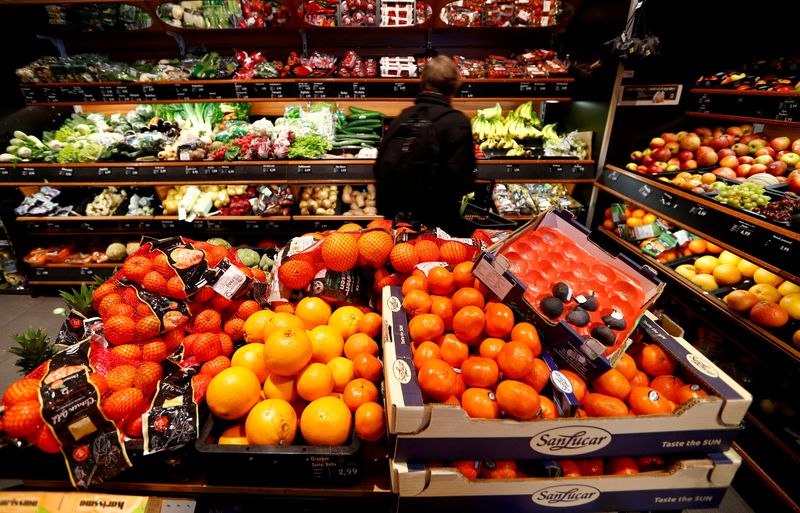By Maria Martinez
BERLIN (Reuters) -German consumer prices in April posted their smallest increase since the start of the war in Ukraine, as energy prices eased further and food prices began to fall.
Consumer prices, harmonised to compare with other European Union countries, rose by 7.6% on the year in April, preliminary data from the federal statistics office showed on Friday. This was the lowest year-on-year reading since March 2022.
Analysts had expected harmonised annual inflation to remain unchanged from March at 7.8%.
Month-on-month, harmonised consumer prices rose 0.6%, the data showed.
The rise in energy prices - up 6.8% in April - was again milder than the overall inflation index, as was the case in March, showing a downward trend in energy prices.
A base effect explained part of that easing: the index was at a high in April 2022 after energy prices soared following the Russian invasion of Ukraine, so the year-on-year comparison was smaller.
In addition, German government relief measures were also contributing to the current easing of energy prices, the statistics office said.
Food prices in April continued to show above-average growth, posting a 17.2% year-on-year increase. However, they fell month-on-month for the first time since October 2021, Commerzbank (ETR:CBKG) senior economist Ralph Solveen said.
"After the inflation rate for energy already peaked in September, this now also appears to be the case for food," Solveen said.
For Solveen, April's figures support the expectation that the inflation rate will continue to decline in the coming months.
Inflation is forecast to fall to 5.9% in 2023 and 2.7% in 2024, according to the spring economic projections of the German government published on Wednesday.
Despite the downward path expected for headline inflation, there are still challenges ahead.
"What looks like a broader disinflationary process is still only disinflation on the back of base effects," ING's global head of macro Carsten Brzeski said, adding that core inflation, which excludes food and energy due to their price volatility, remains high.

Germany's labour market is so tight that workers have gained bargaining power in wage negotiations and wage growth could perpetuate inflation. The seasonally-adjusted jobless rate remained stable at 5.6% in April, labour market data showed on Friday.
"Recent wage settlements and still decent pipeline pressure in services are likely to keep core inflation high," Brzeski said.